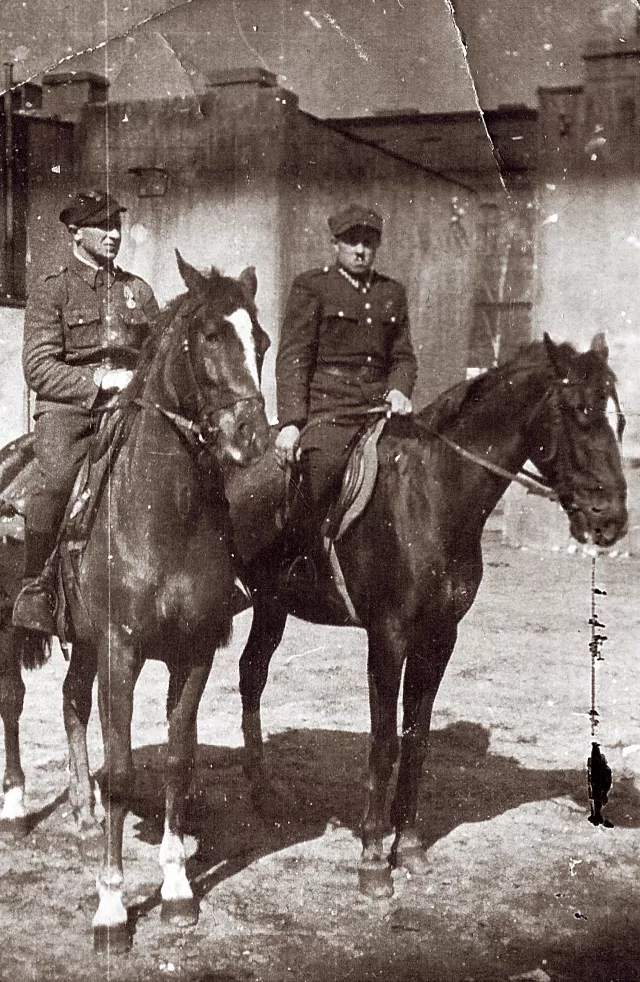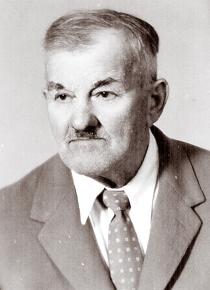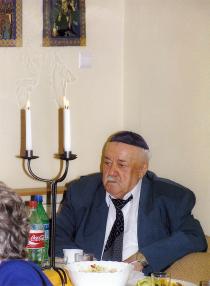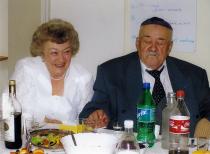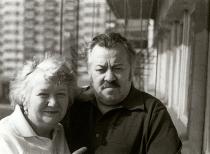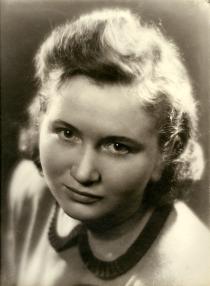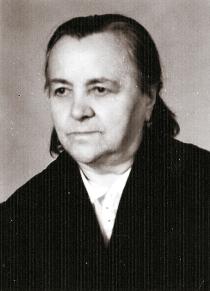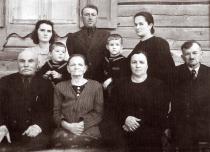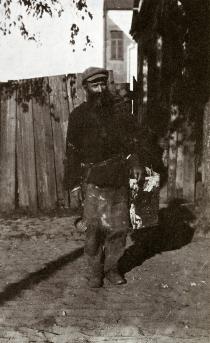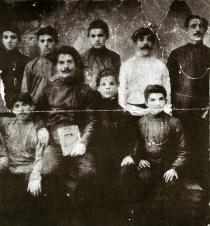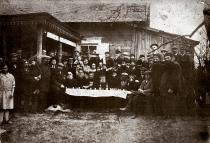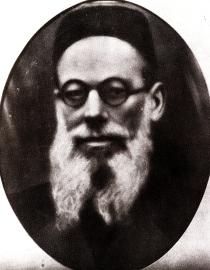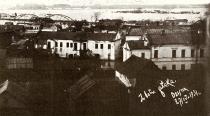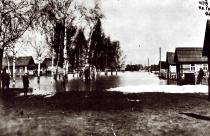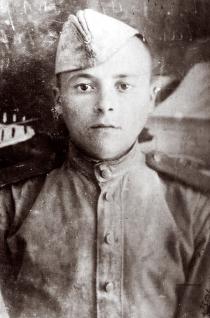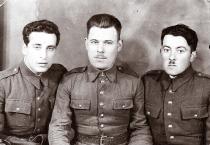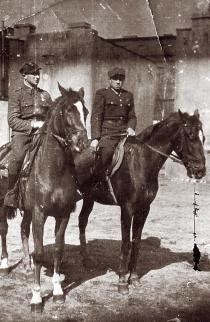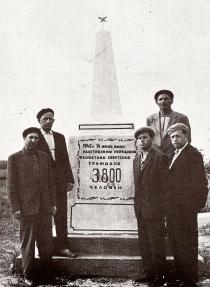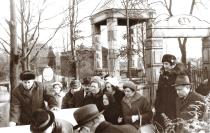This is a photo of me and some friend from the Polish Army. The photo was taken in Lodz in 1945. I don?t remember who took it.
In 1944 I went to a petty officers' course in Zytomierz. It was still 1944. It was like an officers' school, but you didn't get an officer's rank. It was a six-week course. There they'd say, 'Although I can't write, I can't read, I can speak.' I later learned these courses were modeled after Pilsudski's 1st Division. I graduated from the course, but didn't receive an officer's rank.
There was a political officer there, Michalak, he was from Cracow. I went to see him and told him I wasn't fit to be an officer, because of that leg and that accent. I never hid the fact that I was Jewish. Anyway, not with my accent. My name, Solowiejczyk, was well known there. Because of that uncle Abram, who used to sell horses. So I knew my place, I knew I'd finally get a disability pension anyway. Although I could have done whatever I wanted. I was held in high esteem. I was known for being able to arrange things that others weren't able to do.
They later moved us to Lublin, to officers' training school. We were quartered in Majdanek. There we found corpses which were still warm. It was dangerous there. If a soldier didn't come back in the evening, we'd go looking for him. We'd find him in a ditch, undressed. The Ukrainians didn't care if you were Jewish or not, if they needed a uniform they'd undress you and kill you.
I arrived in Lodz in 1945, in February. The Russians were still quartered in the barracks on Obroncow Stalingradu Street. We later cleaned those barracks up. If we needed coal, then we'd go out onto Obroncow Stalingradu under the bridge. There were peasants passing by in wagons, we would stop them, have them unload the wagon, go to the station to get some coal, load it up and bring to the barracks.
When we needed workers for the kitchen, we'd go out on the corner of Cmentarna and Obroncow Stalingradu Streets, to the bus stop. The Germans had to wear armbands. We took those with armbands for tidying up the barracks and to the kitchen. They worked until the evening. They'd get coffee, soup, we'd feed them and give them something to drink. They'd later wait in front of our gate, volunteer, because there was nothing to eat. And the Germans felt safer with us.
Leon Solowiejczyk in the Polish Army
The Centropa Collection at USHMM
The Centropa archive has been acquired by the United States Holocaust Memorial Museum in Washington, DC.
USHMM will soon offer a Special Collections page for Centropa.
Academics please note: USHMM can provide you with original language word-for-word transcripts and high resolution photographs. All publications should be credited: "From the Centropa Collection at the United States Memorial Museum in Washington, DC". Please contact collection [at] centropa.org.
